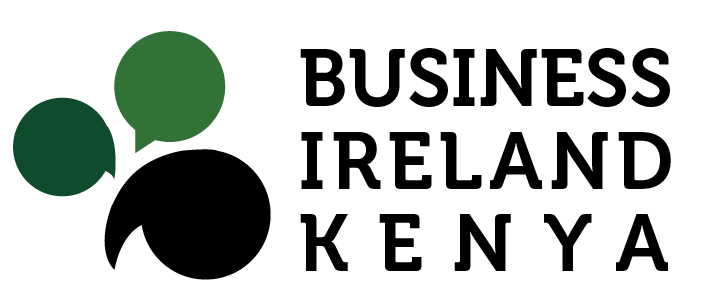Manufacturing
According to the United Nations Conference on Trade and Development (UNCTAD) – Revised Edition 2012 report, Kenya aims to become a prime supplier of basic goods to the eastern and central African markets before moving into the manufacture of niche products for other markets.
The strategy proposes to invest in training, research and development and attract large investors in agro-processing industries to target local and international markets. As such, the development of economic clusters and SME business parks is envisaged.
Despite being East Africa’s most industrialised country, Kenya’s manufacturing industry contributes only 14 per cent to its GDP and has been more or less stagnant since the 1980s. Shortages in hydroelectric power, high energy costs, poor infrastructure, high taxation, and the increasing availability of cheaper imports have combined to create this stasis. The sector’s operations are concentrated in Kenya’s largest cities, Nairobi, Mombasa, and Kisumu, where the largest companies are based, including BOC Kenya, Williamson Tea Kenya, British American Tobacco Kenya, Baumann Co, Carbacid investments, Bamburi Cement, East African Breweries, Crown Berger, East African Cables, Unga Group, EA Portland Cement, Athi River Mining, and Kenya Orchards.
The Kenya Government’s Industrial Transformation Programme, launched in 2015, aims to galvanise manufacturing by stimulating exports, investing in a food processing hub, building local content for resource and infrastructure investments, and enhancing non-industrial sectors such as ICT and wholesale and retail trade. Alongside this, there are moves to increase support for small and medium sized manufacturing firms, and to commercialise results from research and development (R&D) projects.
A key factor in the drive to industrialise is Kenya’s focus on creating a series of special new industrial estates and areas where like-minded companies can gather together. For example, 120 companies manufacturing only for export markets today operate in 58 Export Processing Zones (EPZs) across Kenya, enjoying business-friendly regulations and significant tax benefits. Similar operations called Special Economic Zones (SEZs), for firms focused on domestic as well as export trade, are to be launched in Mombasa and Lamu on the coast, Kisumu in the west, and Naivasha in the Rift Valley. Priority businesses include agro-processing, fertilisers, tea and coffee, and fish processing.
Opportunities in Manufacturing
The shift to export oriented manufacturing is from 7% to 15 % according to KenInvest ,and investment opportunities exist for direct and joint-venture investments in:
- Iron and steel industries;
- Manufacture of fertilizer and agro-processing;
- Machine tools and machinery;
- Motor vehicle assembly and manufacture of spare parts;
- Manufacture of garments;
- Assembly of automotive components and electronics; and
- Manufacture of plastics, paper, chemicals, pharmaceuticals, metal and engineering products.
All these opportunities exist for both domestic and export markets
Notwithstanding the stagnation of the Kenya manufacturing sector over the last two decades and the continued lack of competition and production within its subsectors, Kenya has experienced a steady growth in recent years. Massive investment in infrastructure and improvements to the business environment are driving this. In a bid to increase its share of the East African regional market from 7 per cent to 15 per cent, Kenya is shifting towards export-oriented manufacturing and SEZs. Investment opportunities within the manufacturing section include making fertilizer, agro-processing, food processing, machine tools and machinery, consumer goods, textiles and clothing, automotive assembly, plastics, paper, and engineering products.
| Incentive | EPZ | SEZ |
|---|---|---|
| Operating License | Single license from EPZ Authority | Sector specific |
| Utilities | Full support services on site | |
| Corporate Income Tax | 10-year holiday then 25 per cent rate for the next 10 years* | 10 per cent for first 10 years, 15 per cent for the next 10 years. |
| Withholding Tax and Dividends | 10-year holiday on dividends and non-resident remittances* | 10 per cent for professional services and interest (other than dividends) to non-residents. Dividends tax-exempt. |
| VAT and Import Duty | Perpetual exemption on raw materials, machinery, office equipment, some boiler and generator fuel, building materials, and others. VAT exempt for local purchases of goods and services. Vehicles that leave EPZ lose exemption. | Supplies are VAT exempt |
| Stamp Duty | Perpetual exemption on legal instruments | Exempt for any instrument related to firm’s SEZ activities. |
| Investment Deduction | 100 per cent on EPZ buildings and machinery, over 20 years. | 150 per cent for investments greater than €1.8m outside Nairobi, Mombasa, Kisumu. |
| Work Permits | Skill specific | Entitlements for up to 20 per cent of full time workers. SEZ Authority may recommend more for specialized services. |
| Repatriating capital and profits | Easy repatriation of capital and profits. Access to foreign currency accounts, domestic and off-shore borrowing. | All capital and profits may be fully repatriated without foreign exchange restrictions |
| Other incentives | One stop shop service for facilitation after care by the EPZ investors support division | Available but sector-specific |
Exceptions include for EPZ commercial activity. Refer to website for full details.

